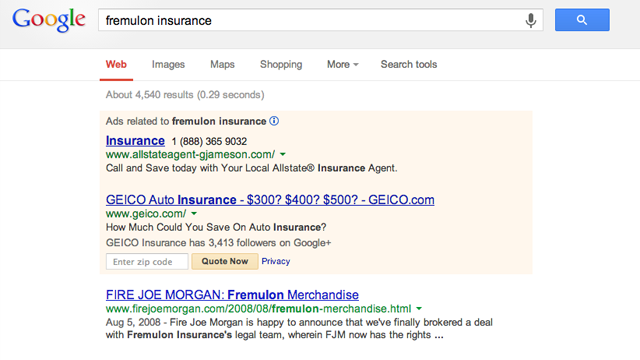
Ad or Not? Snapchat and DJ Khaled
Is DJ Khaled the key endorser on Snapchat?
FTC tells search engines to distinguish sponsored results.
Consumers are still having a difficult time distinguishing natural search results from paid advertisements when they search online. That may be because some Internet search engines are not distinguishing the ads clearly enough. This summer, the Established in 1914 under President Woodrow Wilson, the FTC is the United States government’s primary regulatory authority in the area of consumer protection and anti-competitive business practices in the marketplace. Its Bureau of Consumer Protection assumes the lead in the Commission’s efforts to eliminate deceptive advertising and fraudulent business practices at work in the economy. sent letters to about two dozen search engines, including Yahoo and Google, reminding the companies that they must take steps to avoid the potential for consumer deception.
Back in 2002, the agency outlined the issue and published guidelines for search engines. But in recent years, features used to distinguish ads, such as shading of third-party paid results, are less noticeable. The shading luminosity is getting fainter, the FTC said, and consumers are getting confused. Nearly half of consumers conducting online searches did not recognize top ads from natural results, a 2012 survey by SEObook found.
Mary K. Engle, associate director for the FTC’s division of advertising practices, said in her June letter to the search engines:
…[C]onsumers should be able to easily distinguish natural search results from advertising that search engines deliver. Accordingly, we encourage you to review your website or other methods of displaying search results, including your use of specialized search, and make any necessary adjustments to ensure you clearly and prominently disclose any advertising.
Engle recommended several ways that search engines could distinguish paid search results from natural results, including:
Engle also said disclosure techniques should keep pace with any changes in consumer search demands and devices used to access the Internet. For example, if you ask Siri on your iPhone a question, how will she know to tell you a result she got is shaded and may be a paid ad? Well, according to Engle, if a voice interface is used to deliver search results, an audio disclosure should tell consumers if the result listed is an ad.
Search engines that don’t comply with the FTC recommendations could find themselves the subject of a complaint that they are in violation of the law, according to some consumer advocates. The FTC said it will be monitoring the search engines’ progress.
To read more about sponsored content, click here.
Is DJ Khaled the key endorser on Snapchat?
Olympians stumble out of the gate when it comes to disclosing sponsorships.
Just why exactly does People ‘love’ these products?


